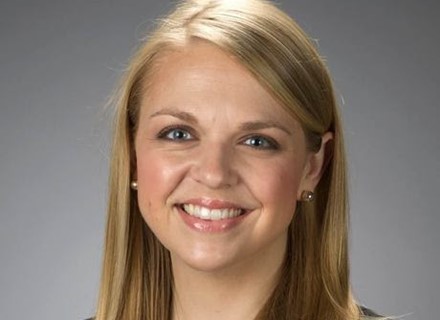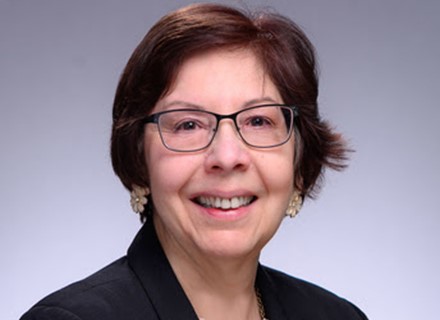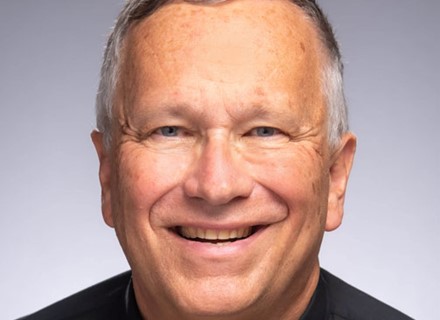Dear Colleagues,
When it was clear earlier this year that the COVID-19 pandemic was here to stay for a while, many of us found different ways of coping with our “new” normal, both at work and outside of work. For example, my husband and I found new socially distanced ways of interacting with our two young grandsons using Caribu, the kids’ version of Zoom. I’ve been listening to Lin-Manuel Miranda’s “Hamilton” during my drive to and from work. (We also adopted a kitty, Moti, from the Humane Society of St. Joseph County, but that’s another story.)
In one of my favorite songs, Alexander Hamilton and his fellow young revolutionaries sing, “And when our children tell our story, they'll tell the story of tonight!” This got me thinking, what will be our collective memories of our story of how we overcame the many challenges brought by the pandemic?
Today, I want to highlight the Accountancy Department’s faculty and staff for their steadfast commitment and collective efforts to advance our teaching, research and service endeavors, despite the many disruptions. We have much to be proud of, but due to space limitations, I will highlight just some of the Department’s many accomplishments and related strategic goals.
Owing to the hard work of our graduate and undergraduate curriculum committee members and our highly dedicated faculty, this year we were able to expand our course offerings, from principles courses to graduate-level courses. This fall, we rolled out our new Accounting Data Analytics concentration in our
M.S. in Accountancy program, consisting of 8 credit hours, available to MSA students in our two tracks, Assurance & Advisory Services and Tax Services. Our new courses, Accounting Data Exploration and Visualization (ACCT 70080) and Accounting Data Management (ACCT 70180), taught by new colleague
Elizabeth Chorvat, have been well received by our students and recruiters.
In spring 2021, we will offer Advanced Accounting Analytics (ACCT 70291) and a new undergraduate course, Tools for Accounting Analytics (ACCT 30180). These courses expand our current offerings, Data Analytics in Accounting (ACCT 70281), taught by Jeff Burks; Fraud and Audit Analytics (ACCT 40520/ACCT 70521), taught by Keith Urtel; and Data Analytics in Accounting (ACCT 30280), taught by Jeff Burks and John Donovan.
Another new MSA course offered this fall, Hal White’s Corporate Disclosure: Accounting Institutions and Academic Research (ACCT 70831), introduces students to capital market research with an emphasis on corporate disclosure research. This course joins Brad Badertscher’s Accounting Research I (ACCT 40930), which acquaints undergraduate students with research methods and protocols to interpret and understand the implications of research findings. One of our strategic goals with these courses is to continue inspiring future generations of accountancy Ph.Ds.
Our cross-college and cross-department collaborations have also expanded. This fall, we offered a new course for non-Mendoza students, Fundamental Financial Literacy (ACCT 10100), developed and taught by Ed Hums. The course is designed to present the advantages of effective financial planning for the students’ personal and professional lives. In addition, our 15 credit hours Accountancy Minor program for non-Mendoza students continues to grow, with over 100 students from the Colleges of Arts and Letters, Science and Engineering bringing diverse perspectives to the intellectually stimulating discussions in our accountancy courses.
One of our strategic goals with the
Accountancy Minor program is to offer our multi-talented students a path to our MSA program and open more doors for future careers in accounting and finance, among others.
In spring 2021, we will offer a new undergraduate course, Sustainability: Accounting and Reporting and Impact Investing (ACCT 30160), a collaboration between the Accountancy department and the Notre Dame Institute for Global Investing. Brendan Maher and Tara Kenney, both ND alumni and experts in socially responsible investing, will be joining me in this new course, which is open to Mendoza and non-Mendoza students who have completed ACCT 20100/ACCT 20200.
Even with a compressed 2019 filing season and the many challenges imposed by social distancing, with Colleen Creighton’s leadership, our domestic Tax Assistance Program (TAP) was able to serve 352 low-income taxpayers in our community with the assistance of 50 Notre Dame students, 11 Saint Mary’s College students, five ND/SMC faculty volunteers, and one volunteer from Crowe LLP. And with Ken Milani’s leadership, our International TAP was able to prepare 1,696 returns for 828 international taxpayers with the assistance of 20 MSA students.
This year we also had several student-recruiting efforts and student-centered events, among them (not an all-inclusive list):
- MSA webinars. Our thanks to Jim Seida and Shane McCoy for their many webinars offered this year to current and prospective MSA students. The fall webinars included students from North Carolina A&T State University and the University of Puerto Rico – Mayagüez campus. The webinars and personal follow-ups are contributing to increasing MSA enrollments projections for the MSA class of 2022. We also are enhancing our diversity and inclusion MSA recruiting efforts.
- Events and services sponsored by Beta Alpha Psi, which recently received international recognition as a Superior Chapter for their outstanding efforts during the 2019-2020 academic year. Our thanks to Janet O’Tousa for her outstanding leadership as BAP faculty adviser.
- Deloitte Case Competition. Owing to Sam Ranzilla’s outstanding leadership, we held this year’s competition virtually earlier this month, assisted by our Deloitte partners and managers and by the dedicated faculty who advised the six competing teams: Brad Badertscher, Erik Beardsley, John Donovan, Stephannie Larocque, Fred Mittelstaedt and Jessie Watkins.
- Accountancy Excellence Scholarships reception. This annual event, held virtually this year, gives us the opportunity to come together to congratulate our outstanding undergraduate scholarship recipients and to connect them with our benefactors – the Big 4 and Grant Thornton LLP. We plan to use these scholarships to enhance our undergraduate diversity and inclusion recruiting efforts.
Two of the busiest persons in our department, Jamie O’Brien and Amanda Rink are instrumental to our Department’s efforts. In everything they do, Jamie and Amanda always go beyond the call of duty while exhibiting a highly supportive and upbeat attitude. Thank you!
And yes, we did not pull through this year unscathed. We settled for virtual graduations, advisory board meetings, and department socials. We also faced cancellations of research conferences, workshops and study abroad programs. We look forward to reconnecting virtually with our Advisory Board members on Dec. 10. And next year, we will celebrate the retirement of two of our dear colleagues, Sam Ranzilla and Tom Schaefer, former department chair, and thank them for their distinguished service to the Department, Mendoza, Notre Dame and the accounting profession.
We also look forward to the first of two conferences on the topic of
Accounting for Sustainability and Responsible Investing, hosted by the
Center for Accounting Research and Education. The first conference, to be held in 2021, will be virtual; the second, scheduled for 2022, will be held in-person at
Mendoza. Our thanks to
Peter Easton
and
Lorie Marsh, who, despite the incredible pandemic-related challenges, have endeavored to reimagine the 2021 conference in creative ways.
Best wishes for a blessed Christmas holiday with your loved ones!
Yours in Notre Dame,
Sandra C. Vera-Muñoz
Deloitte Foundation Department Chair
Department of Accountancy






